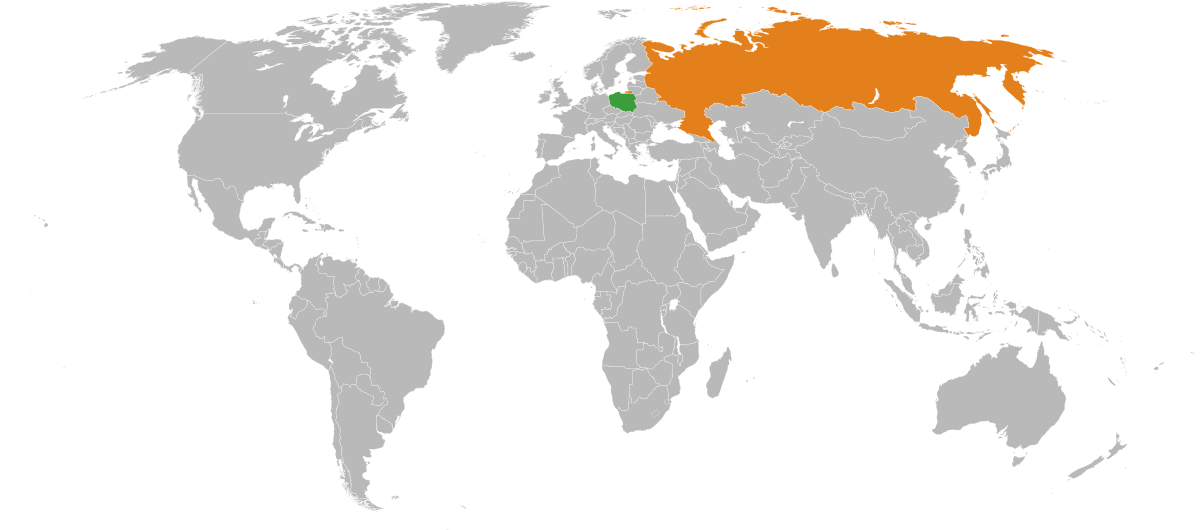Understanding Poland: Past and Present Relations with Russia
Poland, a nation with a rich history and a dynamic present, has seen its share of challenges and triumphs, particularly in relation to its neighbor, Russia. This blog post delves into the intricate relationship between Poland and Russia, examining historical contexts, political dynamics, and contemporary implications. Whether you are an HR professional, a business leader, or simply curious about geopolitical affairs, understanding this relationship is crucial.
At the heart of Poland’s history in relation to Russia lies a fabric woven from years of conflict, alliances, and ideological differences. From the partitions of Poland in the late 18th century, which saw the country lose its sovereignty to neighboring powers, to the Soviet influence during the Cold War, Poland’s narrative with Russia is one of resilience and transformation.
According to Wikipedia, Poland’s efforts to reclaim independence solidified its national identity in the face of Russian dominance. The re-emergence of Poland as a sovereign state in 1918 marked a significant turning point. However, World War II and the subsequent Soviet takeover complicated these relations further, casting a long shadow over Polish memories.
In the years following the disintegration of the Soviet Union, Poland embraced democratic reforms and integrated deeper into European structures, which positioned it against the backdrop of Russian resurgence under Vladimir Putin. This modern context has seen a renewed focus on national security and economic cooperation within Europe, while also managing a careful yet critical stance towards Russia.
The Historical Context
To understand the current dynamics of Poland and Russia, we must first look at the historical context. The partitions of Poland, which occurred between 1772 and 1795, effectively erased Poland from the map for over a century. During this time, territories were divided among Austria, Prussia, and Russia, leading to a period where Polish culture and identity were suppressed. Not until the end of World War I did Poland regain its independence, only to be subjected to the brutal realities of World War II.
Following WWII, Poland fell under Soviet control, which was marked by the establishment of a communist regime that lasted until the fall of the Berlin Wall in 1989. This era was characterized by deep-seated resentment towards Russia, as many Poles associated Soviet presence with oppression and loss of freedoms.
Modern Relations: A Complex Web
Since its accession to NATO in 1999 and the European Union in 2004, Poland has sought to forge a path of independence from Russian geopolitical influence. The modern relationship between Poland and Russia can be viewed through the lens of economic interactions, military alignments, and the ongoing debates on historical narratives. Despite being neighbors, both countries continue to struggle with mutual suspicions and differing worldviews.
Economically, Poland has diversified its partnerships, particularly with the Western powers, thus reducing reliance on Russian energy supplies. The Nord Stream gas pipeline projects, which bypass Poland to deliver Russian gas directly to Germany, exemplify the complexities of energy politics in the region. Poland’s push towards energy independence through investments in renewable energy and diversified gas supplies reflects a broader strategy to mitigate Russian influence.
Security Concerns in the Current Landscape
As tensions have escalated in Eastern Europe, especially amid the ongoing conflict in Ukraine, Polish security concerns have intensified. The annexation of Crimea by Russia in 2014 was a watershed moment that reshaped security discussions in Poland, resulting in increased military spending and strengthening military cooperation with NATO allies.
In response to potential threats, Poland has been proactive in hosting NATO military exercises and allowing for the establishment of a NATO Enhanced Forward Presence in the region. This presence not only serves as a deterrent to potential aggression from Russia but also reinforces Poland’s position as a strategic ally within the NATO framework.
The Human Connection: Cultural Exchanges and Public Sentiment
Despite historical grievances, there are numerous cultural exchanges between Poland and Russia that challenge the purely antagonistic narrative. Many Poles have Russian friends and family, and cultural dialogues continue to exist in literature, music, and art. However, the public sentiment remains deeply affected by historical events, causing a nuanced view of Russia among the Polish populace.
In recent surveys, many Poles have expressed a sense of caution regarding Russia’s intentions, yet there remains a segment of the population that advocates for more cultural understanding and exchanges. This complex relationship highlights the ongoing tension between historical memory and the hope for a more collaborative future.
Conclusion: A Path Forward
As we look to the future, the relationship between Poland and Russia will undoubtedly continue to evolve. The historical context of conflict is pivotal in shaping contemporary perceptions, yet there are opportunities for dialogue and cooperation. Navigating this relationship will require wisdom, patience, and an open mind from both sides.
For business professionals and HR leaders, understanding Poland’s position in relation to Russia not only aids in grasping geopolitical trends but also supports strategic planning, especially for organizations operating in both countries. Engaging with Polish partners while being conscious of the historical sensitivities can give businesses a competitive edge in fostering fruitful collaborations.
In summary, while the past cannot be changed, the future can be shaped through informed discussions and connection. Through continuous engagement and understanding, Poland and Russia might one day find common ground that transcends their historical divides.








